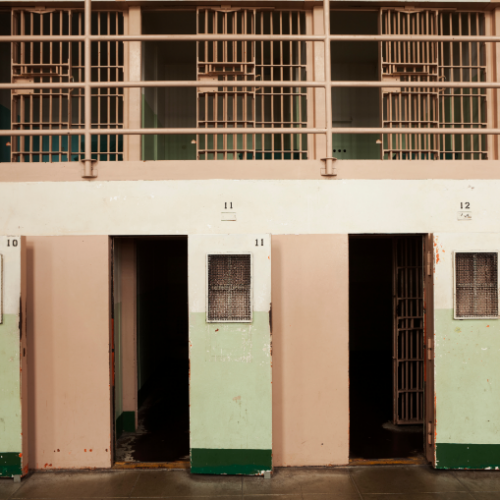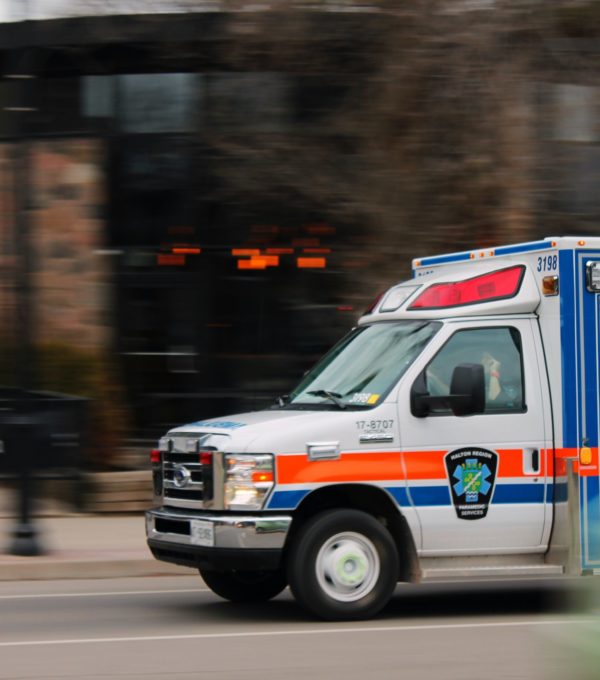
Apply Now to Join the Policing Alternatives to Traffic Safety Learning Community
***********This application deadline has passed.***********
The Center for Policing Equity (CPE), in collaboration with The Council of State Governments (CSG) Justice Center, is hosting a virtual learning community focused on developing a multifaceted approach to traffic safety that is less reliant on police enforcement. The learning community will be led by CPE policy and community engagement staff and include opportunities for mutual learning and presentations from peers and experts. Teams will work toward building systems that deliver safety for all users of the road. The learning community will focus on addressing the dual, interrelated traffic-related harms of racial profiling and crashes. Applicants must have a desire to reduce the scope of enforcement for low-level traffic issues, as well as to prevent the need for traffic enforcement by addressing a wide variety of systemic factors. Upon completion of the learning community, teams will be equipped with an action plan to reduce systemic drivers of disparate traffic enforcement, build equitable approaches to preventing accidents, and develop new models of unarmed traffic response. To build the plan, teams will work through a planning and implementation guide that covers key topics such as goal setting, applying data, resource mapping, policy review, and funding.
Alternatives to Traffic Safety Learning Community Session Dates:
- Tuesday, November 15, 2022
- Tuesday, December 13, 2022
- Tuesday, February 21, 2023
- Tuesday, April 18, 2023
- Tuesday, June 27, 2023
All sessions will take place 2:00–4:00 p.m. ET via Zoom web meeting.
Teams that are interested in participating should submit this application by Wednesday, October 12, 2022. A CSG Justice Center staff member will follow up with you regarding application status by Thursday, October 20, 2022.
If you have any questions, contact Anne Larsen at alarsen@csg.org and/or attend the application drop-in office hours on Tuesday, October 4, 3:00–4:00 p.m. ET via Zoom.
Who should apply?
This learning community is open to teams that are addressing the dual, interrelated traffic-related harms of racial profiling and crashes. Applicants must have a desire to reduce the scope of enforcement for low-level traffic issues, as well as to prevent the need for traffic enforcement by addressing a wide variety of systemic factors.
Who should participate?
Applicants are required to participate as an interdisciplinary team, with each team including ideally (1) one representative from existing first responders to traffic violations (e.g., law enforcement); (2) one representative from the department of transportation; (3) one city or county public health staff member; (4) one local elected official; (5) one representative from the court systems, such as a judge or an administrative staff member; and (6) one advocate or representative from a local community group. One of these representatives should also be capable of being a data representative.* Six team members at most may actively participate in each session, but additional team members may join to listen in.
*The data representative will be the learning community’s point person for data collection related to the project. This person will be responsible for collecting data relevant to the learning community goals, will attend the learning community sessions with their team, and participate in the Data Collaborative Learning Community. The person serving as the data representative does not need to have any formal research or data education and can be one of the other required representatives.
Data Collaborative Learning Community Session Dates:
- Wednesday, January 11, 2023
- Wednesday, February 8, 2023
- Wednesday, March 8, 2023
- Wednesday, April 12, 2023
- Wednesday, May 10, 2023
What will the Policing Alternatives to Traffic Safety Learning Community sessions cover?
Session 1: Setting the Stage: The Dual, Interrelated Threat of Racial Profiling and Traffic Crashes
This session will provide a high-level introduction to the learning community. It will also provide a detailed overview of data that are essential to drive the development of equitable traffic safety (including to shed light on traffic enforcement, financial/systems mapping, and community engagement) and outline concrete steps to get that data. By the end of this session, participants will have a roadmap of information they either have access to or need to gather to inform the rest of their process for designing a multifaceted approach to traffic safety. They will understand the importance of robust quantitative data collection as well as of information-gathering through community engagement.
Session 2: Reducing the Footprint of Police
This session will cover mechanisms to reduce police enforcement of low-level traffic safety issues that are not enhancing safety, including reforms to police policy (pretext stops, consent searches, and quotas) as well as an overview of different models for civilian enforcement of traffic safety. With this information, participants will be equipped to set their goals for the learning community and begin to map which traffic issues police in their jurisdiction are enforcing, with the aim of eventually identifying opportunities to either have no response or an unarmed response.
Session 3: Reducing the Pressure of Systemic Contributors to Enforcement
This session will focus on untangling perverse financial incentives from traffic enforcement, including how driver’s license suspensions due to fines and fees, and equipment issues, contribute to unnecessary traffic enforcement and fuel inequity. This session will also spotlight a variety of city-level reforms to consider implementing to address these contributing factors. It will also include a discussion of the role of automated traffic enforcement in driving inequitable fines and fees. By the end of the session, participants will understand how fines and fees, police enforcement of driver’s license suspensions, police enforcement of equipment violations, and traffic safety are connected. They will have a list of concrete things cities can do to reduce the systemic drivers that increase the number of people who are pulled over and entrapped in punitive and inequitable systems of enforcement.
Session 4: Investing in Equitable Public Health Approaches to Road Safety
This session will focus on “safe systems” models like Vision Zero or Complete Streets, which take a public health approach to traffic safety by focusing on improving systems to prevent dangerous driving rather than responding after it occurs. It will cover how these approaches can incorporate an equity lens when considering enforcement measures and prioritizing disinvested neighborhoods for investment in traffic calming engineering tactics such as raised crosswalks, speedbumps, bicycle lanes, or roundabouts. Participants will use this information, along with a list of funding opportunities for investment in neighborhoods at high risk of crashes, to identify the investments they want to make in public health and/or alternative response models.
Session 5: Putting It All Together
In this session, participants will use information from previous sessions—as well as insights from their data collection, community feedback, and systems mapping efforts—to map out and/or refine answers to the following questions:
- Where are police responding to traffic issues when no response is needed?
- Where are police responding to traffic issues when an unarmed response is needed (or needs to be changed/scaled)?
- What legal reforms need to be advanced?
- What investments in public health approaches to road safety should be prioritized?
Photo Credit: Charles Edward Miller from Chicago, United States, CC BY-SA 2.0 <https://creativecommons.org/licenses/by-sa/2.0>, via Wikimedia Commons
A positive school experience, where a child feels secure, is essential for their well-being. However, for many children…
Read More The Path to Statewide Community Crisis Response in New Jersey: A Community Advocate’s Perspective
Read More
The Path to Statewide Community Crisis Response in New Jersey: A Community Advocate’s Perspective
Read More
 Supporting Children of Incarcerated Parents: Reimagining School and Community Collaboration
Supporting Children of Incarcerated Parents: Reimagining School and Community Collaboration
A positive school experience, where a child feels secure, is essential for their well-being. However, for many children with incarcerated parents—one in 14 in the U.S.—school can feel far from safe due to stigma, trauma, and a lack of understanding.
Read More Bridging Communities and Correctional Systems: Q&A with CSG Justice Center Advisory Board Member Commissioner Nicholas Deml
Read More
Bridging Communities and Correctional Systems: Q&A with CSG Justice Center Advisory Board Member Commissioner Nicholas Deml
Read More
 Assigned to the Cloud Crew: The National Incarceration Association’s Hybrid Case Management for People with Behavioral Health Needs
Assigned to the Cloud Crew: The National Incarceration Association’s Hybrid Case Management for People with Behavioral Health Needs
When returning to their communities from criminal justice settings, people with behavioral health needs face barriers in accessing basic needs—including food, housing, employment, transportation, education, clothing, and substance use and mental health services—which increases their risk of experiencing a crisis.
Read More Meet the Medicaid and Corrections Policy Academy Mentor States
Meet the Medicaid and Corrections Policy Academy Mentor States
New Hampshire Department of Corrections Commissioner Helen Hanks presents at the Medicaid and Corrections Policy Academy in-person meeting.
Read More













